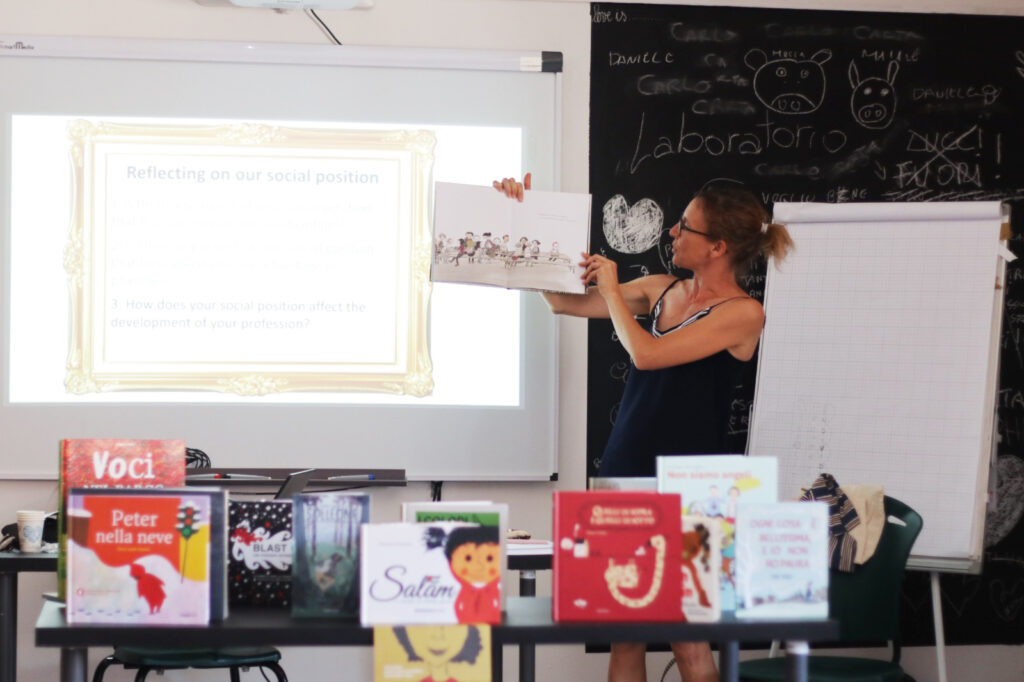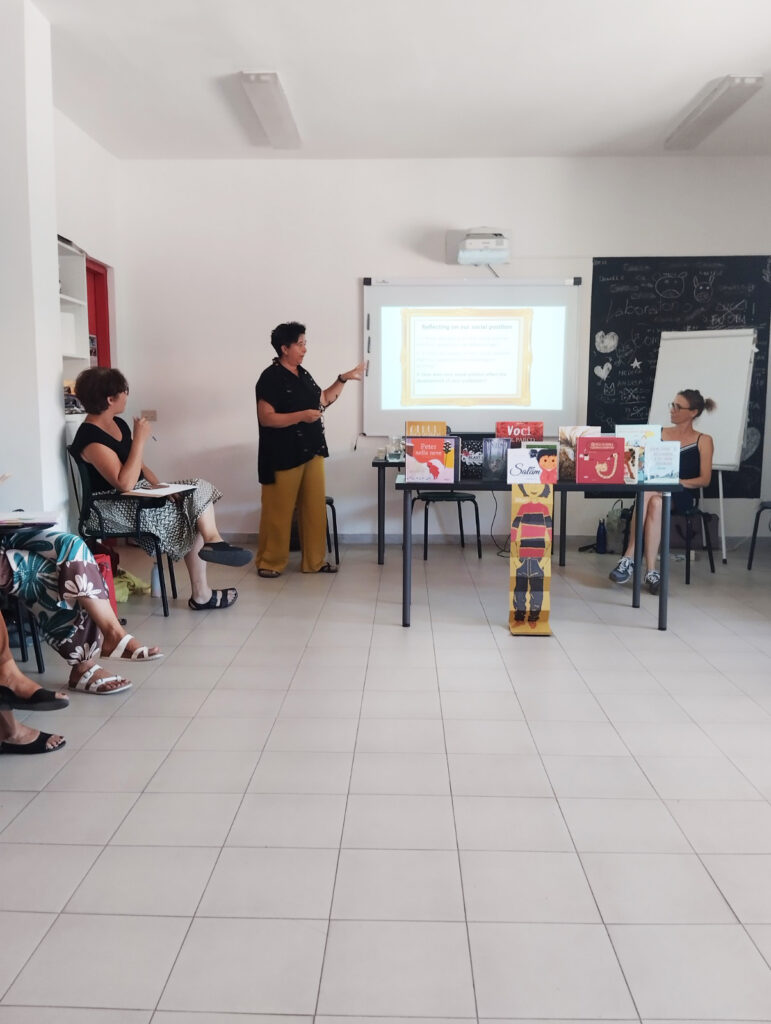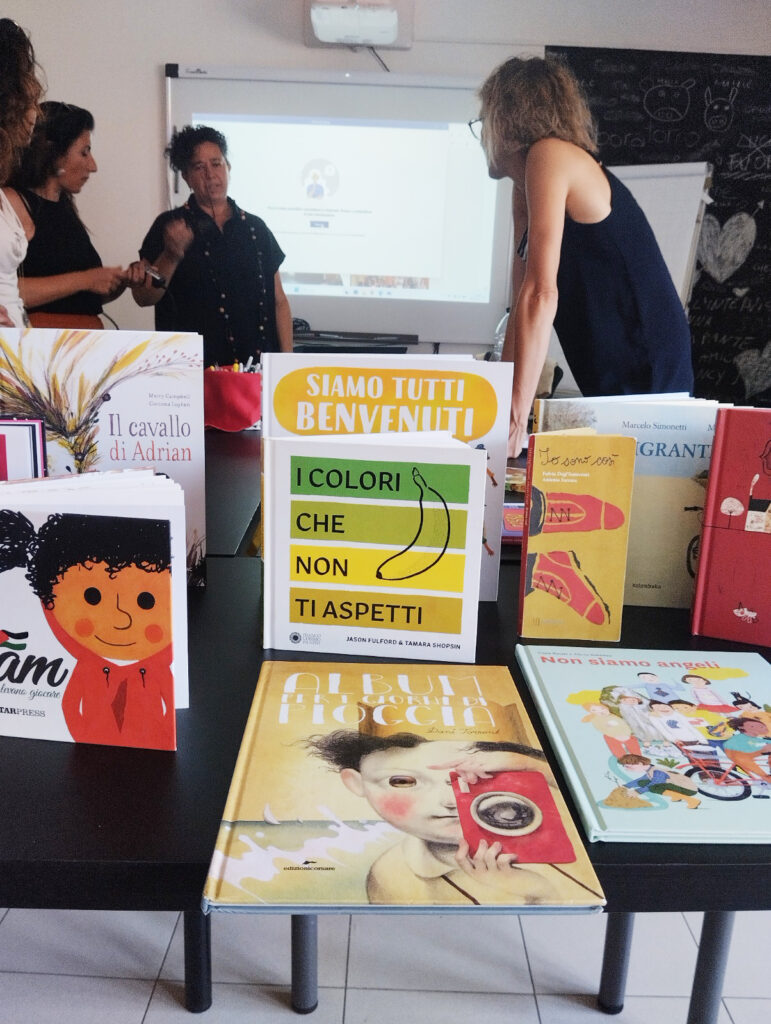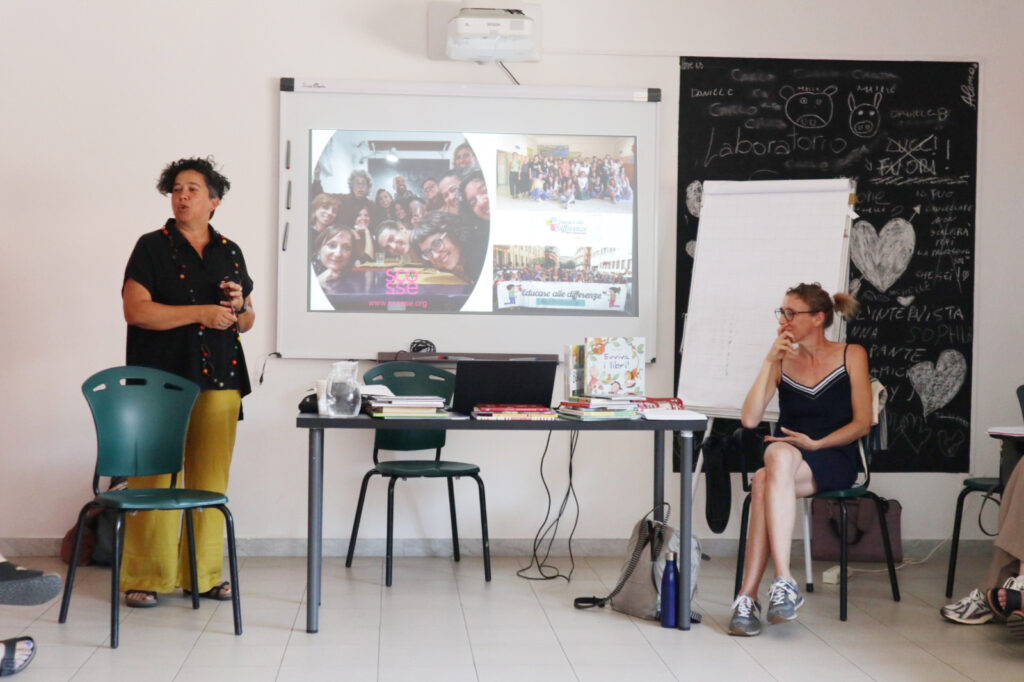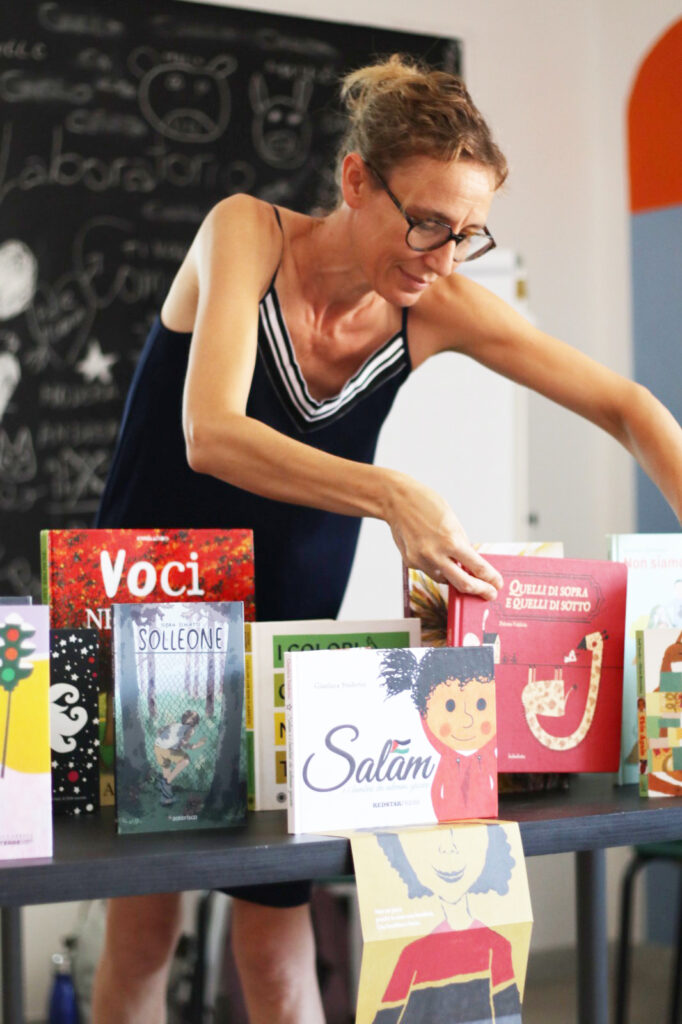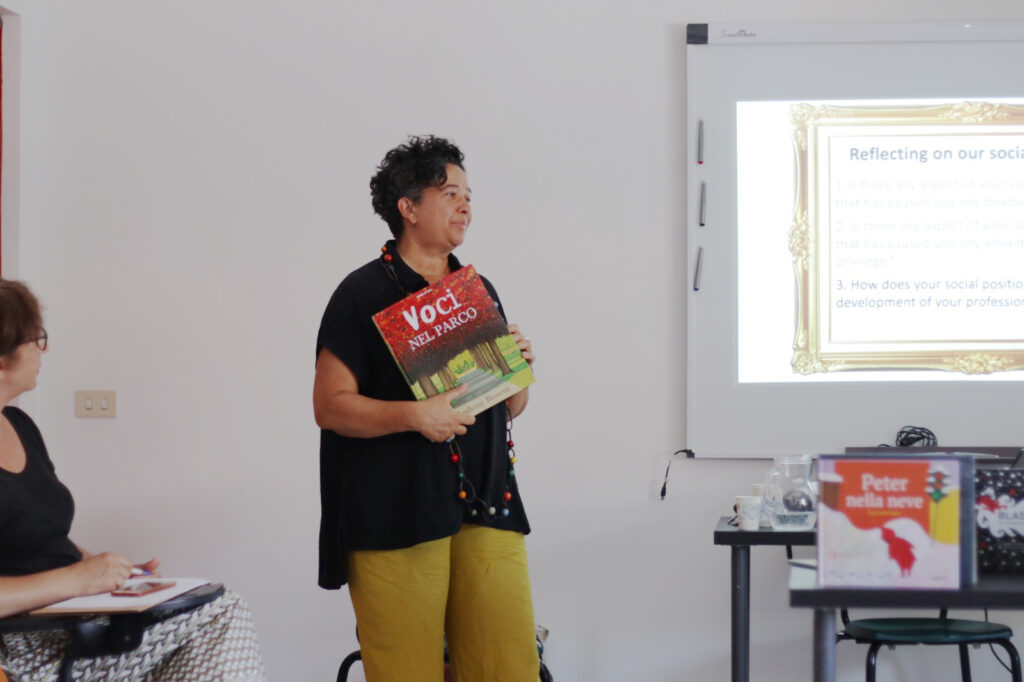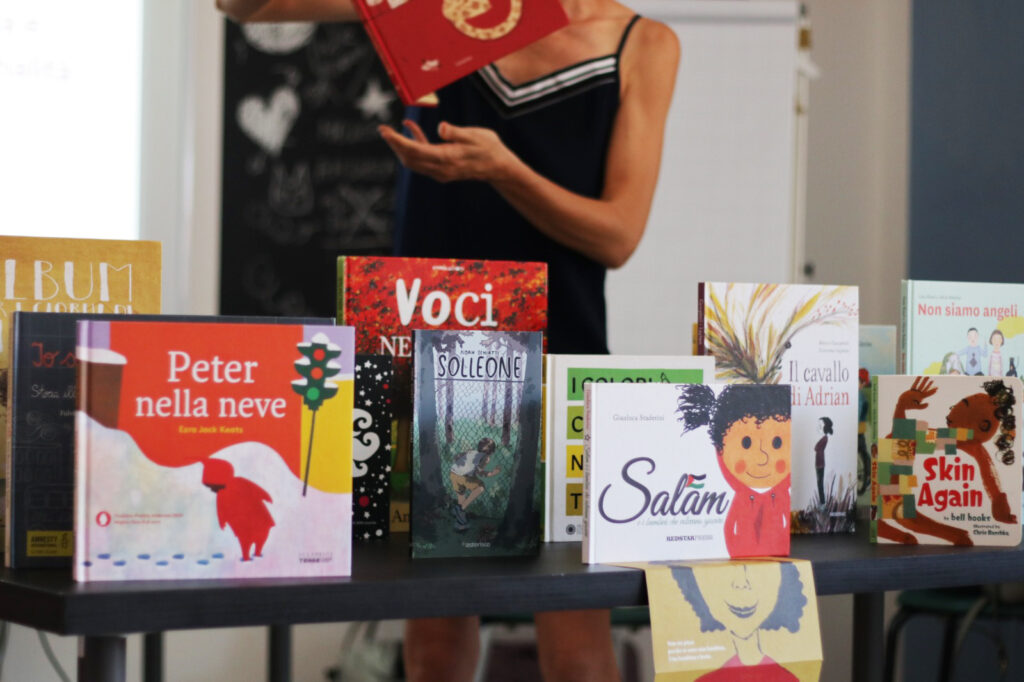
On 18 July in Monterotondo, near Rome, we held a training session delivered by the association Scosse to the operators of the social cooperative “Il pungiglione”, both members of Zoom Out project.
The meeting took place within the framework of teacher training, where we tested the training guidelines on which the project itself is working.
This training for the social cooperative Il pungiglione was different from others, because the target was not a school but a service centre for people with disabilities. However, many of their activities are carried out within schools, where it works with people with and without disabilities. The session was divided into two parts: in the first, we reflected on the theme of Intersectionality, introducing the definition and brainstorming together on what the axes of discrimination can be.Through the ‘Privilege walk’ activity, we reflected on what our position of discrimination or privilege is, and how this positioning changes over time.
In the second part of the training we talked about children’s literature, through the use of illustrated books, which is the specific area of work that the Scosse association focuses on.
We talked about concepts such as the deconstruction of stereotypes, non-stereotypical representations, and the project realized by Scosse ‘Leggere senza stereotipi” (Reading without stereotypes).
One of the most important themes that emerged from this discussion was how the imaginary is being constructed from very early childhood, and how stereotypes and prejudices are transmitted through images and narratives.
Starting from the identity map, we talked about representations, recognitions, and the construction of free and conscious imaginaries.
The analysis of images led us to talk about the homologation of taste, control and power in literary production for childhood and adolescence.
The topics of non-conforming bodies, and sexual and affective education, were also mentioned, albeit only briefly.
Through a series of workshop activities throughout the training, participants had the opportunity to feel safe and comfortable in taking the floor, from a horizontal and intersectional formative perspective.
